Rustproofing (or more specifically, oil spraying) is a pretty hot topic, especially at this time of year. Rust is quite possibly the most common killer of cars and trucks. If we can prevent or even slow down the rusting process, it might just mean that we can keep our beloved vehicles around a little while longer.
If you live in an area that uses salt on the roads in the winter, rustproofing is absolutely worth it. Rustproofing is the best way to defend your car from any corrosive contaminants that you aren’t able to easily wash off. The key is to do it at least once per year so you’re always protected.
As a Toyota truck enthusiast and also a Canadian, I know a thing or two about rust. I know how it can take an otherwise great condition vehicle and render it worthless. I know how quickly it spreads, sometimes hidden beneath the surface. Rust is no joke and it’ll kill your vehicle if you let it.
What if I told you that there was a magical product out there that can reduce the risk of your vehicle rusting in a huge way? Well, there is. And it’s just oil.
Well actually, there’s more to it than that. So for this article, I decided to interview a long-time pal who happens to run a rustproofing business. James Houghton manages Houghton Rust Control – a local oil spraying business that has been in his family for multiple generations.
Before we can decide whether rustproofing is worth it, we need to clear up exactly what it is and what it isn’t.
What’s the difference between rustproofing and undercoating?
Most cars will leave the factory with some kind of hardened undercoating applied to the undercarriage. This is applied long before the vehicle sees the outdoors for the first time. Aside from potentially chipping or cracking from wear over time, there’s nothing wrong with this.
Rubberized or tar-based undercoating has earned a bad reputation over the years. It’s a similar concept – it’s a coating that’s applied to the undercarriage to serve as a protective barrier to the elements.
Why is undercoating bad?
Well, unless you’re applying it on a vehicle that’s never been driven, there’s a good chance that you’re sealing contaminants in between the coating and the undercarriage. Trapping contaminants and/or moisture can actually cause rust rather than prevent it.
The rubberized coating is also flexible, which allows contaminants to squeeze in if a rock chips the coating. Again, this actually locks the things that you don’t want on your undercarriage in.
If this type of undercoating is the only option available to you, you’re probably better off leaving your undercarriage uncoated and simply rinsing it off as often as you can throughout the winter.
What is oil spraying?
Oil spraying might sound similar, but it’s a much more effective way to protect your car. 2 different types of oil are sprayed on your car:
- A thicker gel-like coating that is sprayed on your undercarriage
- A thinner oil that is sprayed on the top side of the car like your door jams and engine bay
More on the type of oil that’s used later. For now, here’s the oil spraying process:
When you first arrive, you’ll have the choice of having a few small holes drilled into your door jams. This allows them to shoot the oil directly into the inside of the panel. They’ll plug the holes with rubber caps after.
Then they go to work spraying your engine bay, inside of your hood and trunk lid, fenders, doors, rocker panels, and quarter panels with the thinner oil.
Next, you’ll pull your car up onto a hoist so they can lift it up. They’ll proceed to spray your entire undercarriage down with the thicker gel in pressurized guns. This allows the oil to be sent deep into the tight crevices while being thick enough to cling for a long period of time.
How long does rustproofing last?
Rustproofing is not a one-time, permanent solution. You should have your car rustproofed consistently every year. Houghton recommends spraying it before every winter and again in the spring to neutralize any leftover salt. This is something you need to stay on top of in order to avoid rust.
In my own experience, I’ve pushed it by skipping a year. Rustproofing may last for nearly 2 years if the vehicle isn’t driven much. In my case, the undercarriage seemed to have a decent amount of oil on it despite being long overdue.
With that said, I’d follow the recommendations if you’re serious about avoiding rust. I was lucky enough to get away with my laziness – you might not be! Consistency is key so it’s much better to stay on top of it.
Another really important factor is when you should begin having your vehicle oil sprayed. Here’s what James had to say:
“Don’t wait until you see rust to start spraying because it makes it so much harder to stop. Get that vehicle sprayed as soon as you get it whether it’s used or new. So much easier to keep a vehicle in good shape if you never let the rust start!”
What does rustproofing cost?
Most oil spraying businesses will charge you between $100 and $150 to spray your vehicle. Of course, the current cost of oil can affect the price. The cost has gradually gone up over the years and I believe that’s the main reason for any increase.
If that price seems steep to you, consider how much it’ll cost to have a body shop replace a rusty panel by cutting it out, welding a new one in, and painting it to match. Suddenly, the price of oil spraying seems a lot easier to manage!
For anyone wanting to save some money by doing it themselves, there are a couple of options:
How do DIY oil spraying products compare to professional grade oil?
The old-timers might tell you that spraying used motor oil on your undercarriage is just as good, and is a great way to save money. Is this true?
James says that motor oil runs off almost immediately without leaving much of a residue behind. It’s far from an ideal solution.
What about store-bought products like Fluid Film? How do they compare?
He agrees that Fluid Film can be a great product – the problem is that it struggles with resistance to rain, slush, and snow. It just doesn’t stay on well enough. So if you choose to go this route, you’re going to be reapplying it a lot more often – and you’ll likely no longer be saving any money.
So why is professional oil spraying better?
According to James, businesses like Houghton use what’s called a petroleum thixatrope. It’s a specially formulated product designed for oil spraying. He describes it as more of a “sprayable gel”. It goes on thick enough to withstand the elements, while still being thin enough to reach all of the tight areas.
7 Of the most common rustproofing myths
We’ve all heard the old wives’ tales from mechanics that are sick of getting oil up to their armpits every time they reach under a freshly rustproofed vehicle. So what’s fact and what’s fiction?
It attracts dirt and salt
James says: “attracting dirt is definitely possible but not really a big deal unless you’re doing some heavy off-roading in which you should be pressure washing the underside of your vehicle anyways.”
“Attracting salt isn’t an issue because the product neutralizes the salt on contact whether you’re spraying over top of the salt or the salt spray comes after.”
Electronic modules do the same thing
The electronic corrosion control modules simply do not work on vehicles. They were intended to work on ships that are submerged in water.
Want to know how I’m so confident that they don’t work? My personal 4runner came with one installed. Guess where the rustiest spot in my engine bay is – yup, right where the module was mounted.
You don’t need to rustproof your car if you park in a garage
This is also false. In fact, parking your car in a heated garage after getting covered in road salt can actually speed up the rusting process.
Rust tends to form in temperatures above freezing. So getting your car covered in salt and parking it outside in -20 degree temperatures is actually less of a threat than parking indoors in terms of rust formation.
It swells your seals
I’ve heard this one from both friends and mechanics. James says that there are indeed some cases of degradation to rubber seals but overall, it’s not a very big problem. In his opinion, weighing the pros and cons between the 2 issues makes it clear that repairing rust is a much bigger threat.
You can only oil spray your vehicle in the fall
While you’ll probably see long lineups at your local oil spraying facility during late fall and early winter, that’s not the only time of year to get your car protected. Most places like Houghton will spray your car throughout the year.
The biggest deciding factor in when to oil spray your car is the weather. It’s important that you do it when the roads are dry, otherwise the oil won’t stick as well. Feel free to do it in the middle of the summer, or in freezing cold temps – just make sure the roads are dry.
Rinsing your undercarriage off with water is better
If you’re able to hoist your car up in the air and pressure wash your entire undercarriage after every single winter drive, then more power to you. That would likely be the best option.
For those of us that live in the real world, oil spraying allows us to protect our vehicles despite not having the time or resources to clean the salt off after every storm.
There’s a good chance that you’ll have to drive on some really messy roads, then have your vehicle sit in temperatures above freezing the next day. That’s the perfect scenario for rust to form. Since you have to show up for work in the morning, you probably won’t be able to spend time detailing your frame with a toothbrush.
Having a barrier of oil on our undercarriages takes the pressure off of us having to clean our cars all winter like psychopaths (although you should still clean your car in the winter!)
It voids your warranty
Nobody wants to void their warranty on their expensive car. I’ve heard conflicting opinions on this one myself. Here’s James’ take on the matter:
“We hear threats about it all the time from dealerships but to my knowledge, we’ve never had an actual person come back and say their warranty was voided. If you’re concerned though never talk to the salesman always go and talk to the service manager!”
So it’s best to consult with your dealership to find out their stance on oil spraying.
So is rustproofing actually worth it?
By now, you should have a pretty clear understanding of oil spraying, how it works, and its benefits. So is it worth it to rustproof your car?
If rust is a concern where you live, oil spraying is definitely worth it. The cost is minimal compared to the price of repairs that will likely be required if you ignore the matter. Rustproofing is a great way to protect your investment if you plan to keep your car for more than a couple of years.
A couple of parting thoughts:
Remember that your door jams will be oily after, so you’ll need to wash them before you can confidently get in your car with nice clothes on.
Also, your vehicle is probably going to smoke and/or smell immediately after getting it oil sprayed. Don’t worry! This is just the overspray burning off your hot exhaust. It’s totally normal, although other motorists might give you funny looks if they think your engine is about to blow up!
Make sure to check out Houghton Rust Control if you live in Southern Ontario and while you’re at it, swing by James’ Instagram page to say hi!

Tim is the creator of Canadian Gearhead. His experience with auto detailing and working for Toyota shows through all of the articles posted here. He runs the Canadian Gearhead site and YouTube channel full-time now and currently owns a 2007 4runner, 2006 Tacoma, and 1991 MR2. Read more about Tim:

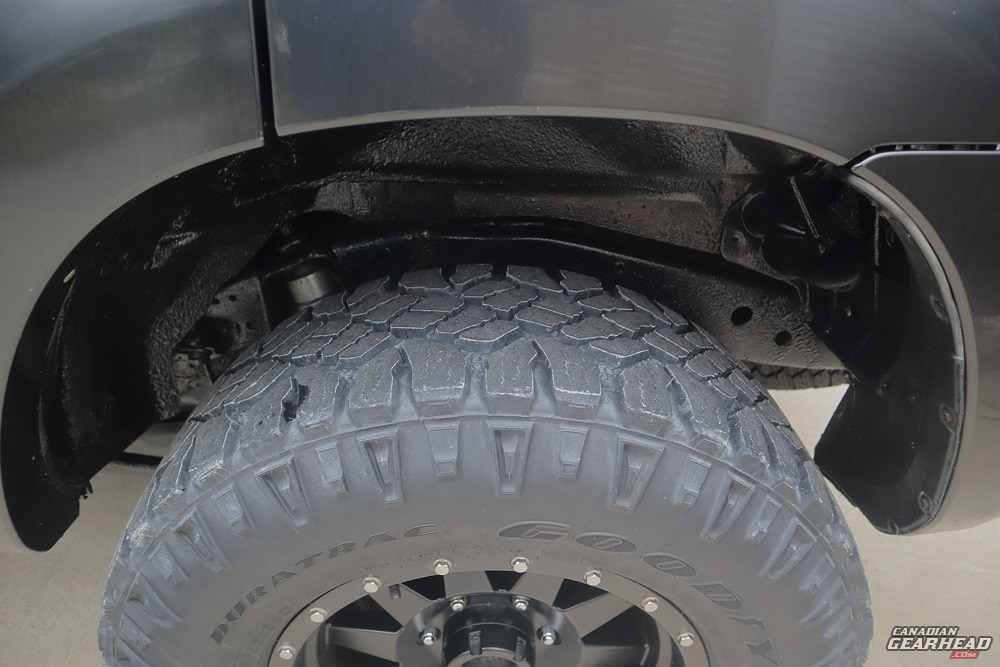
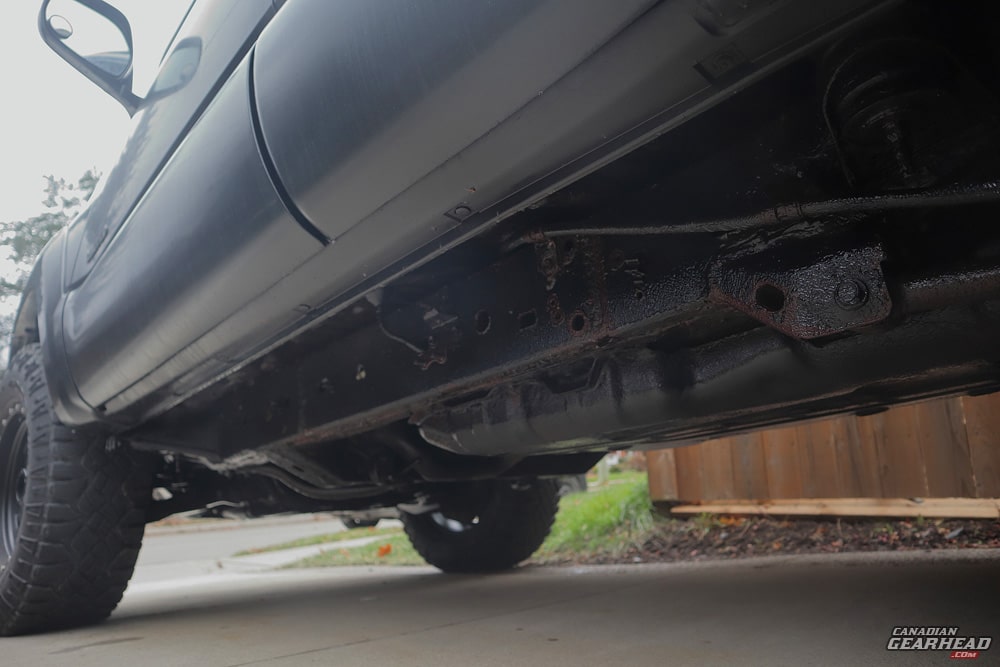
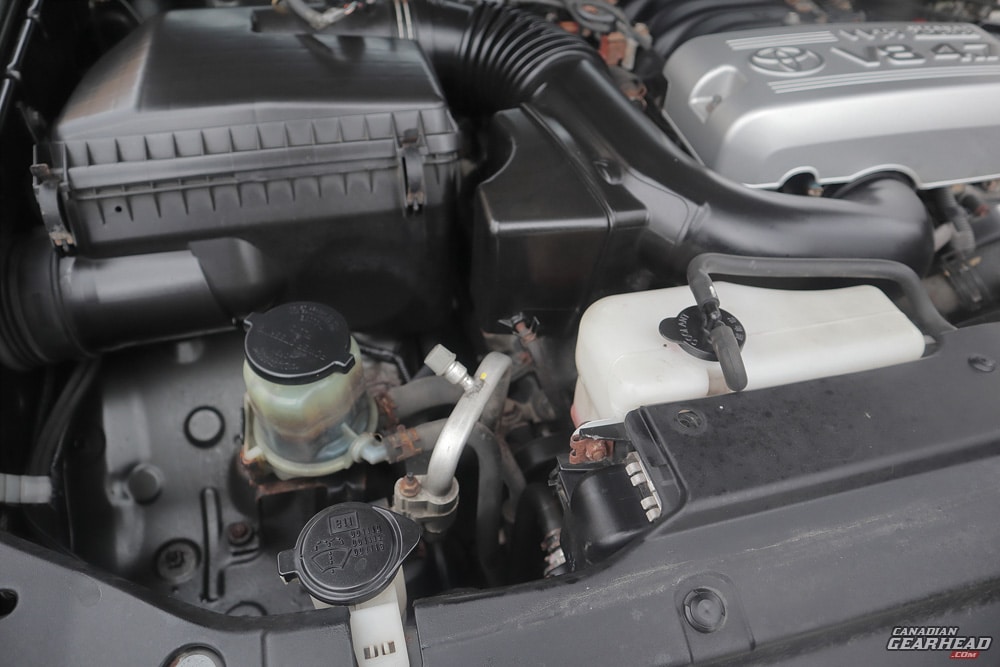
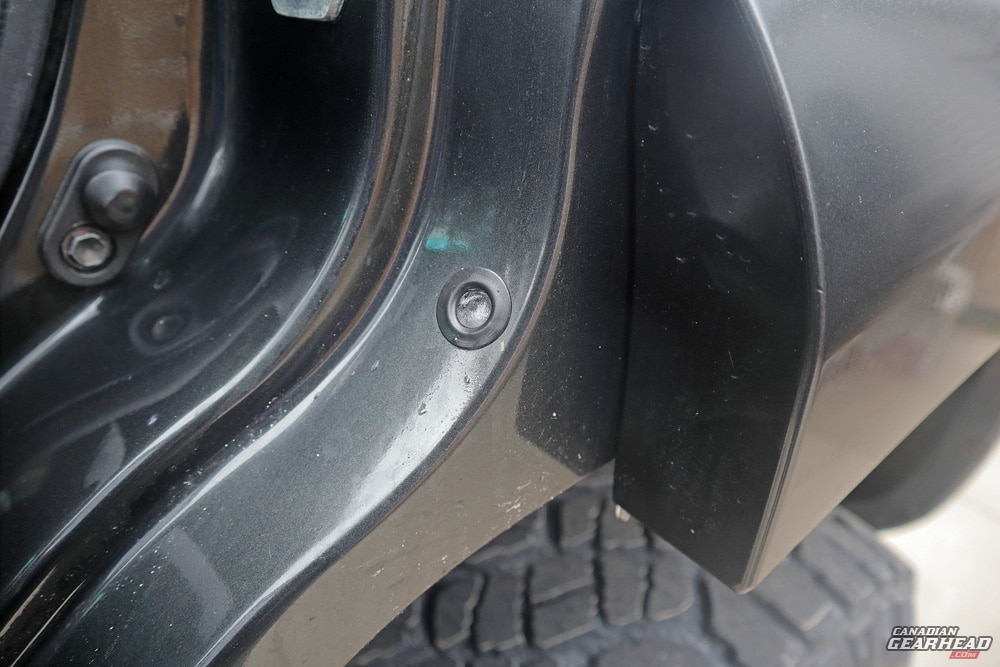
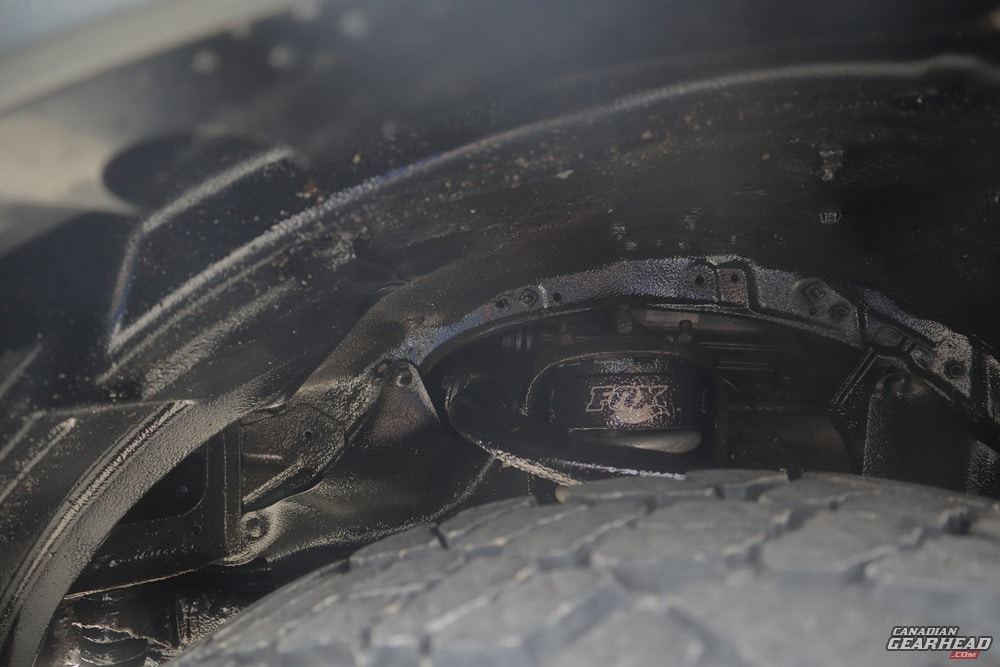
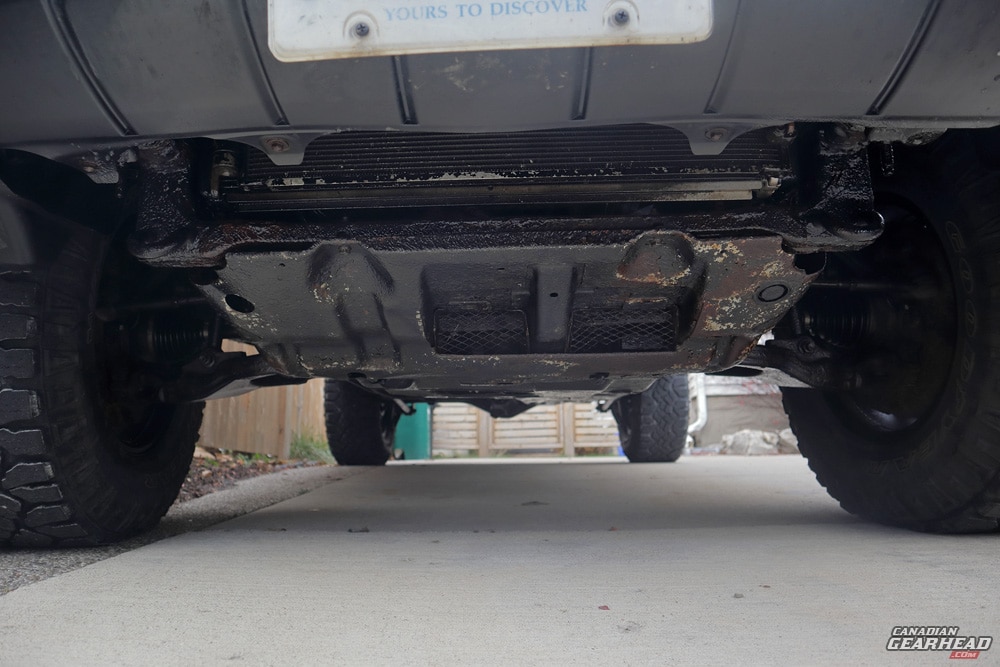
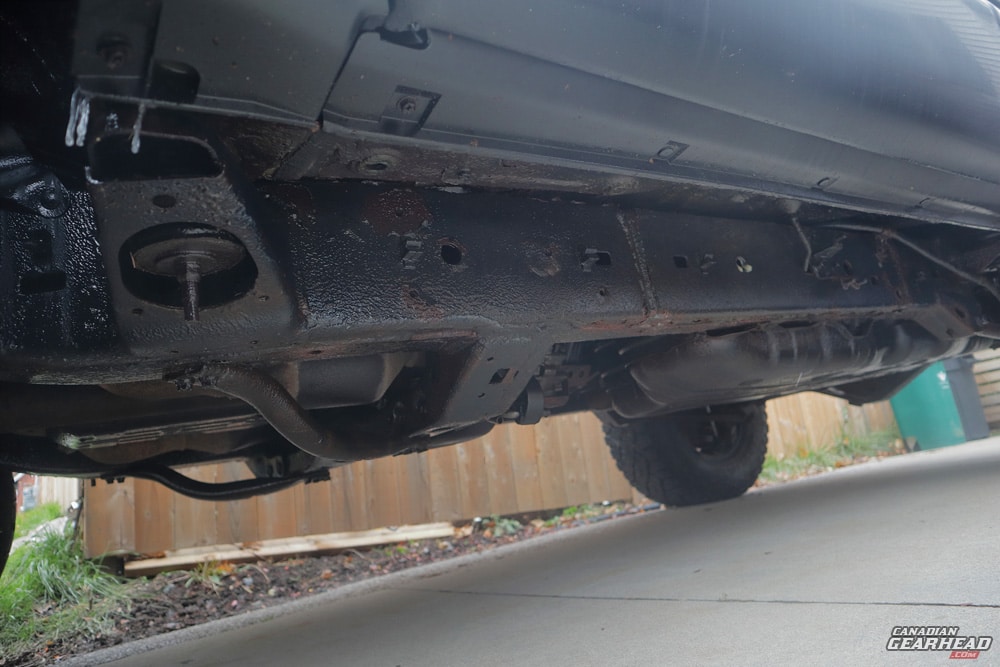

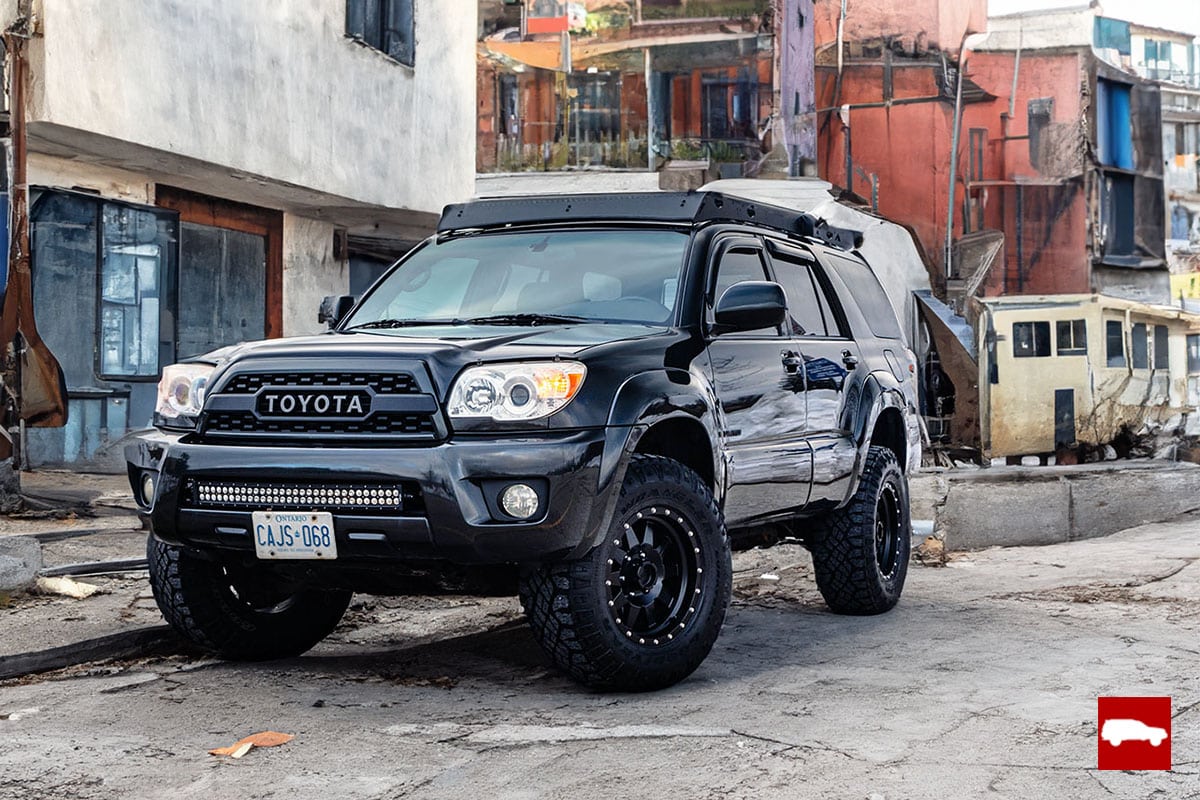
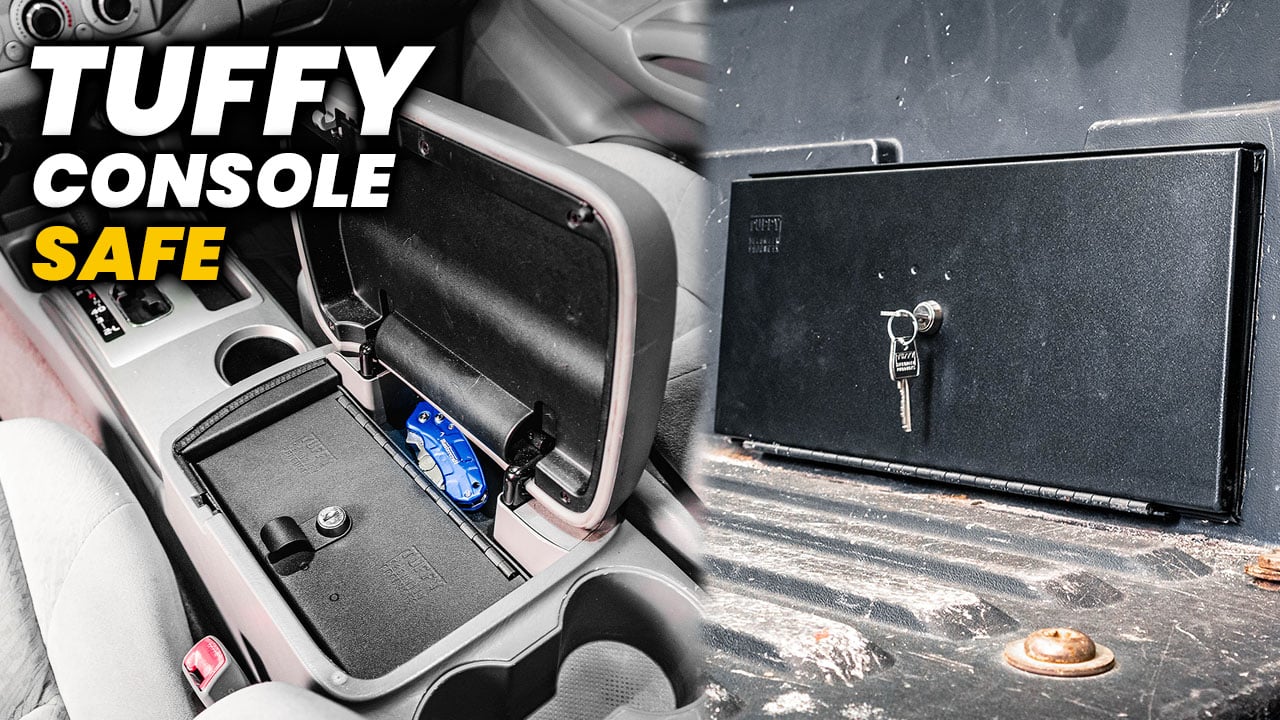
Leave a Reply